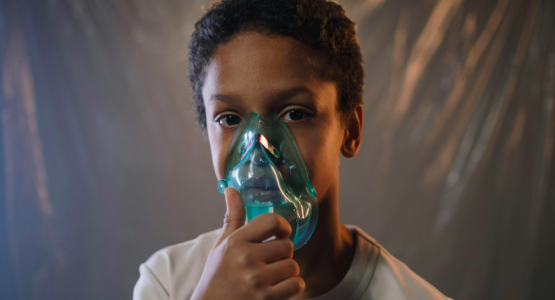Are you at risk? What federal program cuts could mean for asthma sufferers
- Replies 0
For some, it starts with a cough.
For others, it’s a wheeze that never quite goes away.
Asthma isn’t always obvious, but it is always there.
Now, sweeping changes to health programs are putting millions in a vulnerable position they didn’t ask for.
Asthma narrows airways, making every breath harder than the last. For nearly 28 million people across the US, it’s a part of daily life. It’s triggered by everything from pollen and mold to pesticides and air pollution.
And while treatments exist, without access and education, the condition can be fatal. Roughly 10 people die from asthma every single day, according to the Asthma and Allergy Foundation of America.
The good news? Asthma is highly manageable. And federal programs have played a major role in that progress.

Since 1999, a nationwide initiative—the National Asthma Control Program—has provided state and local programs with the tools to reduce asthma-related deaths. It’s helped cut the asthma death rate by 44%. Even more impressively, it saves about $71 in health care costs for every $1 invested.
The program’s benefits have touched states and territories across the country, offering critical funding to asthma education and management groups in 27 states, Puerto Rico, and Washington, DC. Programs can receive up to $725,000 annually over four-year cycles. That money fuels workshops, training programs, and preventive efforts.
But now, it’s on the chopping block.
Esther Bejarano didn’t know what triggered her son’s asthma attack when he was just 11 months old. But she suspected the answer was nearby—sprayed over fields not far from her family’s home. Her area is surrounded by agricultural activity and suffers from poor air quality.
It also has one of the state’s highest rates of childhood emergency visits for asthma. Her son is now 19. Esther works with a local group that trains healthcare workers to teach asthma management.
Their Asthma Management Academy helps families stay out of the hospital, and the program has a waitlist. But it relies on federal grants. Without them, it could disappear.
Also read: How a $500 inhaler cost led to a tragic asthma death—who's at risk?
The administration has proposed a budget that would eliminate the National Asthma Control Program entirely. Earlier cuts have already affected the program, following mass layoffs at a key health department. Now, advocates warn that this could be the final blow.
Clinics in multiple states—including some of the most challenging regions for asthma sufferers—have built vital services using this grant funding. These include asthma education, clinician training, and in-home care strategies.
Without continued support, these programs may vanish.
The consequences? More ER visits. More preventable deaths. And less help for those who need it most.
The program doesn’t just fund education—it also gathers nationwide asthma data. It helps track hospitalization rates, death rates, and trends among different populations. Health experts say this information is critical.
"How do we justify the services we provide if the data isn't there?" said Graciela Anaya, Director of Community Health at a local asthma collaborative. Experts fear the loss of this data could freeze asthma care in place, cutting off our ability to track what works.
"My fear is we're going to live in a world that is frozen in Jan. 19, 2025," said Mitchell Grayson, Chair of the Asthma and Allergy Foundation’s Medical Scientific Council.
Also read: Are you breathing right? Discover the surprising triggers behind asthmatic conditions affecting 1 in 10 Americans!
Asthma doesn’t affect everyone equally. Communities of color and those with lower incomes often face the worst triggers—from living near highways to dealing with pesticide exposure or mold in public housing. Programs focused on addressing these disparities are now under threat too.
Environmental protections are being rolled back. Diversity-focused grants are also being halted. The impacts could be especially devastating in areas that already struggle with pollution.
One heavily industrialized region recently earned an "F" for ozone levels, according to the American Lung Association. "Urgent asthma needs in communities are getting defunded at a time when I just see things getting worse in terms of deregulation," said Isabel González Whitaker, Director of EcoMadres.
As the climate changes, asthma gets harder to manage. Wildfires, rising temperatures, and worsening air quality all exacerbate symptoms. The National Institutes of Health’s Climate Change and Health Initiative recently received $40 million for research on this connection.
That funding is now at risk, too. A recent memo effectively halted all grants that focus on diversity, equity, and inclusion—resources that many asthma-related programs rely on to operate.
In one community near a drying lakebed known for pesticide-laced dust and sulfur smells, a 12-year-old girl died from an asthma attack. She had been recommended for an at-home asthma education program. She was still on the waitlist when she passed.
Her death, according to Bejarano, "showed the personal need we have here."
"Deaths are preventable. Asthma is reversible. If you have asthma, you should be able to live a healthy life."
Read next: A major shift in treatment coverage is set to impact five states—are you prepared?

We believe no one should have to fight for their breath. Have you or someone close to you struggled with asthma care? Are you concerned about losing access to asthma programs in your community? Drop your thoughts or personal stories below.
For others, it’s a wheeze that never quite goes away.
Asthma isn’t always obvious, but it is always there.
Now, sweeping changes to health programs are putting millions in a vulnerable position they didn’t ask for.
Asthma narrows airways, making every breath harder than the last. For nearly 28 million people across the US, it’s a part of daily life. It’s triggered by everything from pollen and mold to pesticides and air pollution.
And while treatments exist, without access and education, the condition can be fatal. Roughly 10 people die from asthma every single day, according to the Asthma and Allergy Foundation of America.
The good news? Asthma is highly manageable. And federal programs have played a major role in that progress.

Sweeping changes to health programs are putting millions in a vulnerable position they didn’t ask for. Image Source: Cottonbro Studio / Pexels
Since 1999, a nationwide initiative—the National Asthma Control Program—has provided state and local programs with the tools to reduce asthma-related deaths. It’s helped cut the asthma death rate by 44%. Even more impressively, it saves about $71 in health care costs for every $1 invested.
The program’s benefits have touched states and territories across the country, offering critical funding to asthma education and management groups in 27 states, Puerto Rico, and Washington, DC. Programs can receive up to $725,000 annually over four-year cycles. That money fuels workshops, training programs, and preventive efforts.
But now, it’s on the chopping block.
Esther Bejarano didn’t know what triggered her son’s asthma attack when he was just 11 months old. But she suspected the answer was nearby—sprayed over fields not far from her family’s home. Her area is surrounded by agricultural activity and suffers from poor air quality.
It also has one of the state’s highest rates of childhood emergency visits for asthma. Her son is now 19. Esther works with a local group that trains healthcare workers to teach asthma management.
Their Asthma Management Academy helps families stay out of the hospital, and the program has a waitlist. But it relies on federal grants. Without them, it could disappear.
Also read: How a $500 inhaler cost led to a tragic asthma death—who's at risk?
The administration has proposed a budget that would eliminate the National Asthma Control Program entirely. Earlier cuts have already affected the program, following mass layoffs at a key health department. Now, advocates warn that this could be the final blow.
Clinics in multiple states—including some of the most challenging regions for asthma sufferers—have built vital services using this grant funding. These include asthma education, clinician training, and in-home care strategies.
Without continued support, these programs may vanish.
The consequences? More ER visits. More preventable deaths. And less help for those who need it most.
The program doesn’t just fund education—it also gathers nationwide asthma data. It helps track hospitalization rates, death rates, and trends among different populations. Health experts say this information is critical.
"How do we justify the services we provide if the data isn't there?" said Graciela Anaya, Director of Community Health at a local asthma collaborative. Experts fear the loss of this data could freeze asthma care in place, cutting off our ability to track what works.
"My fear is we're going to live in a world that is frozen in Jan. 19, 2025," said Mitchell Grayson, Chair of the Asthma and Allergy Foundation’s Medical Scientific Council.
Also read: Are you breathing right? Discover the surprising triggers behind asthmatic conditions affecting 1 in 10 Americans!
Asthma doesn’t affect everyone equally. Communities of color and those with lower incomes often face the worst triggers—from living near highways to dealing with pesticide exposure or mold in public housing. Programs focused on addressing these disparities are now under threat too.
Environmental protections are being rolled back. Diversity-focused grants are also being halted. The impacts could be especially devastating in areas that already struggle with pollution.
One heavily industrialized region recently earned an "F" for ozone levels, according to the American Lung Association. "Urgent asthma needs in communities are getting defunded at a time when I just see things getting worse in terms of deregulation," said Isabel González Whitaker, Director of EcoMadres.
As the climate changes, asthma gets harder to manage. Wildfires, rising temperatures, and worsening air quality all exacerbate symptoms. The National Institutes of Health’s Climate Change and Health Initiative recently received $40 million for research on this connection.
That funding is now at risk, too. A recent memo effectively halted all grants that focus on diversity, equity, and inclusion—resources that many asthma-related programs rely on to operate.
In one community near a drying lakebed known for pesticide-laced dust and sulfur smells, a 12-year-old girl died from an asthma attack. She had been recommended for an at-home asthma education program. She was still on the waitlist when she passed.
Her death, according to Bejarano, "showed the personal need we have here."
"Deaths are preventable. Asthma is reversible. If you have asthma, you should be able to live a healthy life."
Read next: A major shift in treatment coverage is set to impact five states—are you prepared?
Key Takeaways
- Federal asthma programs may be permanently shut down due to budget cuts.
- Communities already dealing with poor air and fewer health resources will be hit hardest.
- Loss of national data could make it harder for providers to track and treat asthma.
- Environmental, climate, and diversity-focused grants are also being targeted for cuts.






